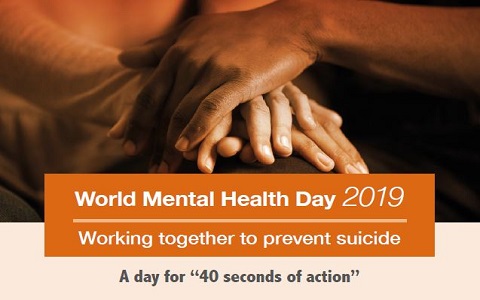

Suicide is an act of taking one’s life intentionally.
The act, though forbidden, is becoming frequent in recent times.
The World Health Organization, WHO, estimates that over 800,000 people die by suicide each year that is an average of one person in every 40 seconds.
Evidently, people who commit suicide are tired of living due to reasons that may be best known to them.
Of course, depression, economic hardship and societal pressure are few of the reasons people commit suicide.
Although, the act is believed to be alien to African culture, the spate in recent times calls for concern.
Early this year, a lecturer at the Department of Mathematics, University of Ibadan, A.O. Subair set himself on fire after resigning from the university without a justifiable reason.
Also this year, the body of Chukwuemeka Akachi was discovered after taking two bottles of sniper.
A 300-level student of the Department of Medical Laboratory Science, University of Benin, Christabel Buoro, reportedly killed herself after being jilted by her boyfriend.
Many instances like these abound.
The World Mental Health Day is celebrated on October 10 every year and the theme for this year is “Suicide Prevention” which is coined to raise awareness on the scale of suicide around the world and the role that each person can play to help prevent it.
However, findings revealed that those who commit suicide exhibit some signs before carrying out the act, but most of the time, people around them, relatives and friends, do not pay adequate attention to these signs.
According to research by a clinical psychologist in suicide prevention, Edwin Shneidmen, people who commit suicide often have a common purpose which is to seek solution to a challenge before them and thus opt to take their lives as a way to get themselves out of the dilemma.
The research further says the perpetrators go through intolerable psychological pains and emotions including shame, guilt, anger, fear and extreme sadness.
These people appear evidently hopeless and helpless and are often times pessimistic about life and the future.
Again, they are unwilling to engage in effective problem-solving behaviour and perceive death as the last resort.
Death is inevitable, but suicide is preventable provided the society, government, Non-Governmental Organisations, NGOs and other stakeholders pay attention to the signs of a suicide victim.
The society needs to brace up in ensuring that the environment is conducive for all to live comfortably and conveniently.
The society should also pay attention and monitor the behaviour of neighbours to quickly identify individuals with suicidal tendencies and therefore provide a timely assistance to such.
There is need for government to embark on policies and programmes that would make life more meaningful for the citizenry, revitalize national economy and create more recreation outfits for citizens to relax, wine and dine and catch fun.
Doing this, would definitely ease tension and frustration that could lead to thinking about suicide.
Individuals on their part should not see suicide as the last resort rather, they should attack and face every challenge of life as they come with the belief that when there is life there is hope.
Interestingly, the two major religions in Nigeria forbid suicide.
Aside this, the Nigerian constitution also regards suicide as a criminal act punishable under the law.
These are pointers to the fact that suicide is not only a crime to humanity but a sin to divinity.
Adedayo Adelowo